Meet the tattooist, tech company creator, vegan restaurateur, art gallery owner and optician who have bucked the trend towards emigration by establishing businesses in the Bosnian capital.
Bosnia and Herzegovina is suffering from a demographic crisis. In 1991, just before the war, there were some four million people living in the country, but now there are estimated to be only 3.3 million, with numbers likely to fall even further. Emigration is a major factor, with many younger people leaving to seek a better future for themselves outside their country’s dysfunctional system with its perceived lack of opportunities. But some are keen to remain. In Sarajevo, photographer Sacha Jennis documented a series of independent entrepreneurs who keep on working to make their hometown businesses a success despite the dire economic outlook.
‘Bosnia offers an opportunity for changes’
Lawyer Erna Šošević started Bizbook, a peer-to-peer network of Bosnian companies, in 2017, aiming to help the business community develop. “My desire to develop a tech company in Bosnia and Herzegovina is precisely because I have no other country. I saw a challenging opportunity to reconcile the various sides through business, helping them get to know each other through the products and services they offer and provide themselves with reliable business partners,” she explained.
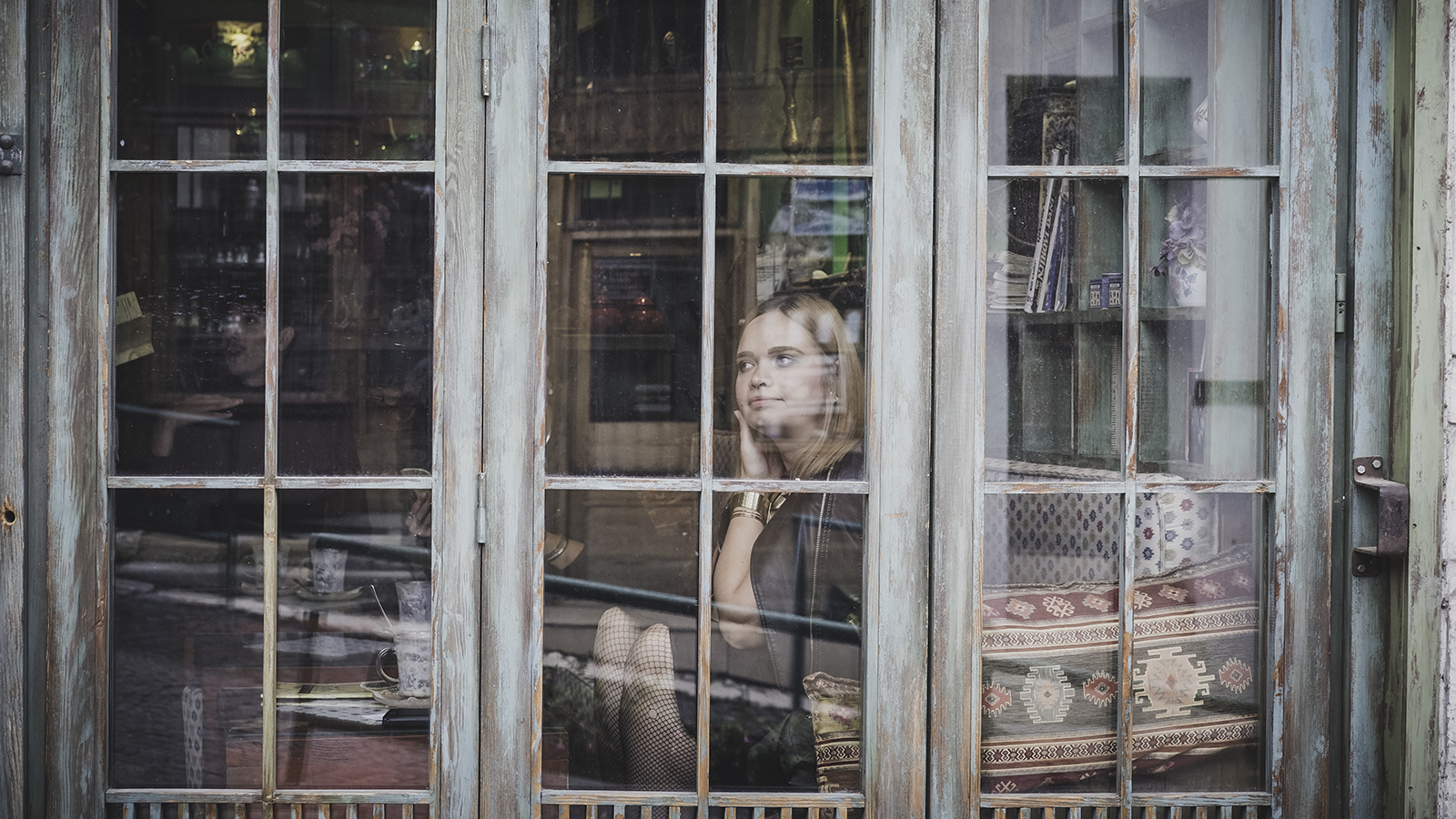
Erna Šošević. Photo: © Sacha Jennis
Now the Bizbook network has 700 members and is run by a team of five women based at Networks, a business centre and co-working space in the downtown Skenderija area. “For me, leaving has never been an option, because Bosnia and Herzegovina, despite the bad geopolitical and economic situation, offers an opportunity for significant changes that come from young people who must be more involved in the various processes of this country,” Šošević said.
‘We can’t imagine living somewhere else’
“We decided that we can make it anywhere if we all stick together, even if it’s here in Sarajevo. All it takes is a group of good friends and hardworking individuals, and we got our results soon after the opening of the studio,” said graphic artist and tattooist Erva Nevesinjac. Nevesinjac set up his tattoo studio in a small apartment near the main Marshal Tito Street in downtown Sarajevo and is determined to stay there.
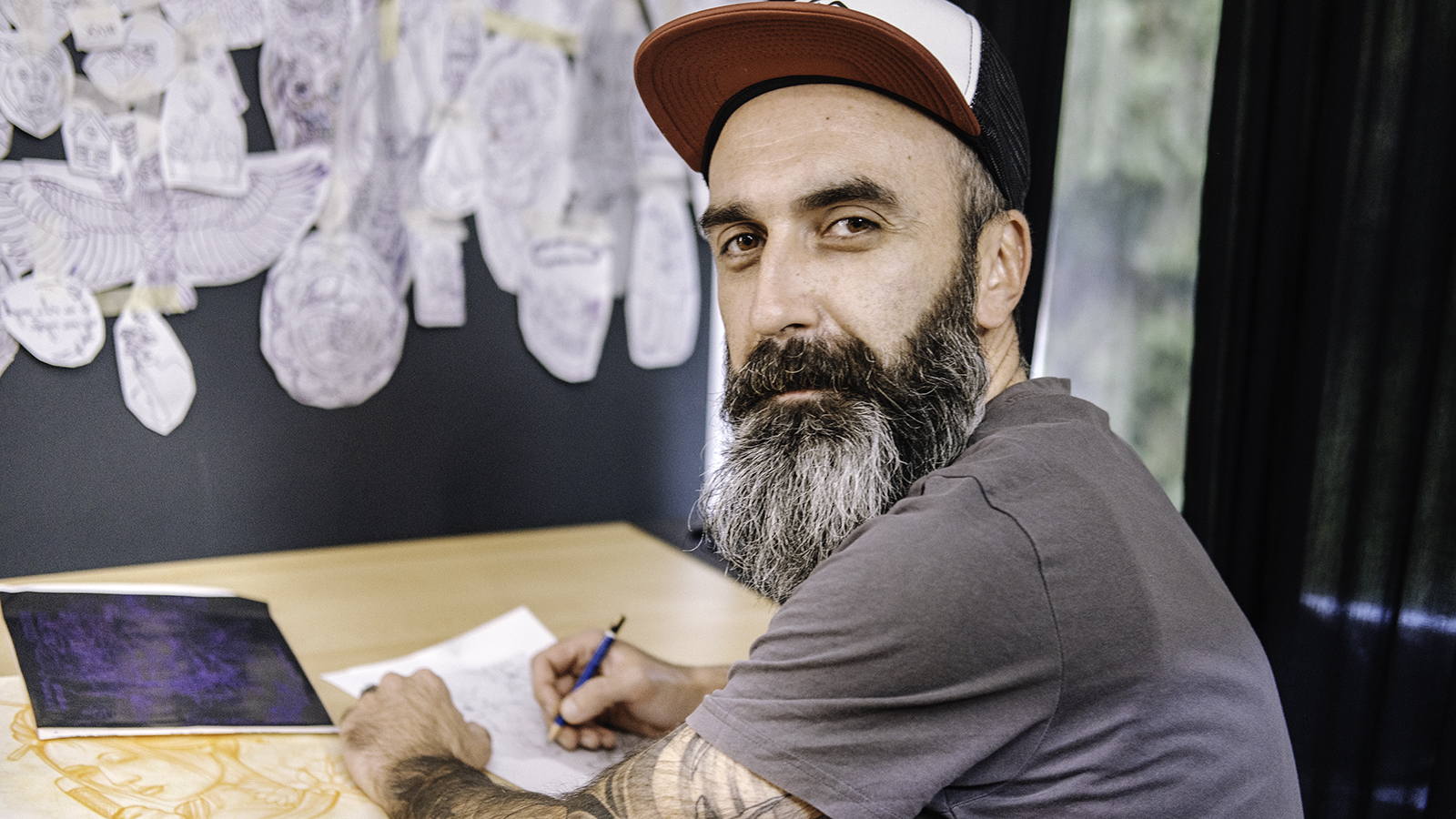
Erva Nevesinjac. Photo: © Sacha Jennis
“We love Sarajevo and we love Bosnia, and we can’t imagine living and tattooing somewhere else. The charm and the experience of tattooing the people from Bosnia is something really unique and you can’t describe it,” he explained.
‘I brought new and cool ideas to Sarajevo’
Miran Lazic started to print his own T-shirts back in 2000, when skatewear and basketball fashion from the US was hard to get in Sarajevo. He produced shirts for friends and himself at first, but decided to found Revolt Clothing, Sarajevo’s own street fashion company, in 2010. Since July 2019 he has also run his own store, Royal With Cheese.
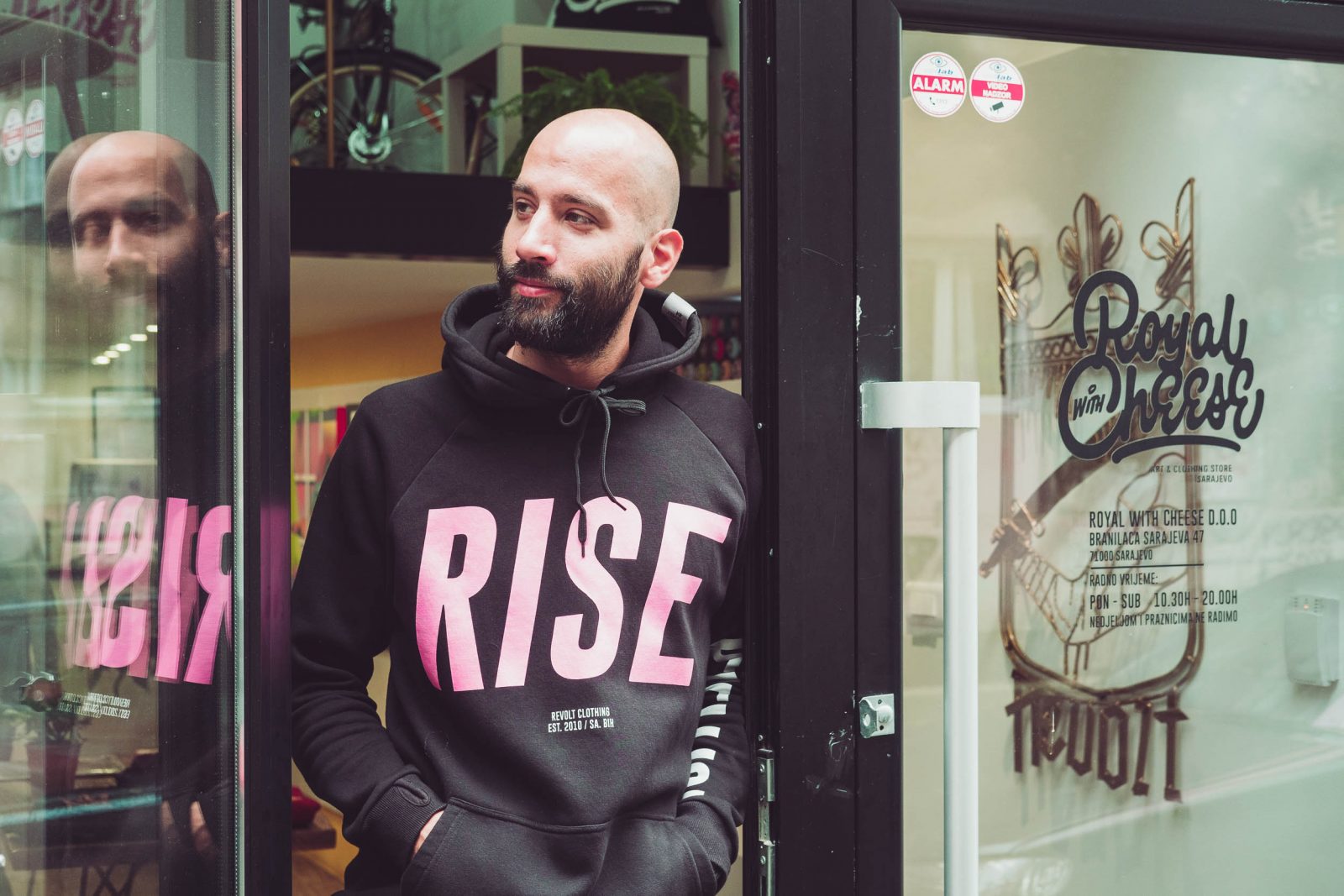
Miran Lazic. Photo: © Sacha Jennis
“I grew up as a refugee in Moscow, where I was introduced to hip hop culture, graffiti art and everything,” Lazic explained. After returning to live in his home country, he continued to travel a lot and was “bringing all the new and cool ideas to Sarajevo”. “I wanted to present the kids and the audience here my experience and things I have learned,” he said.
‘I want to make Bosnians eat healthier’
Being a vegan in a country where the cuisine is meat-dominated can be difficult, and opening a vegan restaurant in a town full of cevapi (grilled minced meat) outlets is even more ambitious. But chef Sasha Obucina is committing to cooking delicious dishes at his slow food restaurant, Karuzo, in downtown Sarajevo, with ingredients sourced from the local market and a Bosnian wine selection to accompany the food he serves.
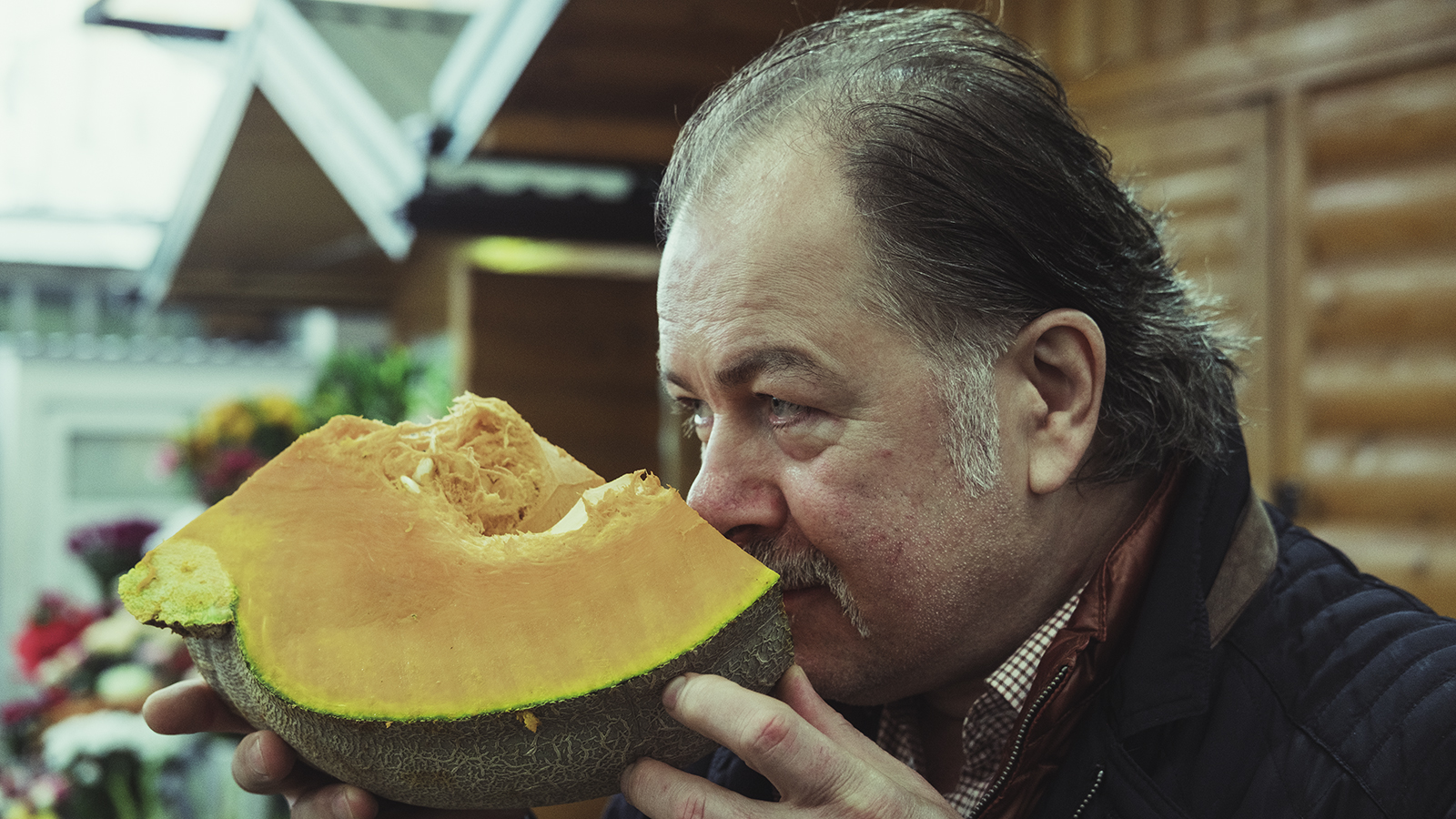
Sasa Obucina. Photo: © Sacha Jennis
“It was my ambition to make Bosnians eat healthier and be more aware of the benefits of plant-based food/diet,” Obucina explained. “I decided to start my own vegan restaurant in Sarajevo because that is my life.”
‘We’ll make our contemporary art scene stronger’
The Brodac Gallery is a small contemporary art space near the Baščaršija old town bazaar district, in a building that used to be a women’s prison – hence the bars in its logo. It’s run by Mak Hubjer, a committed independent gallerist who frequently changes the works he has on display
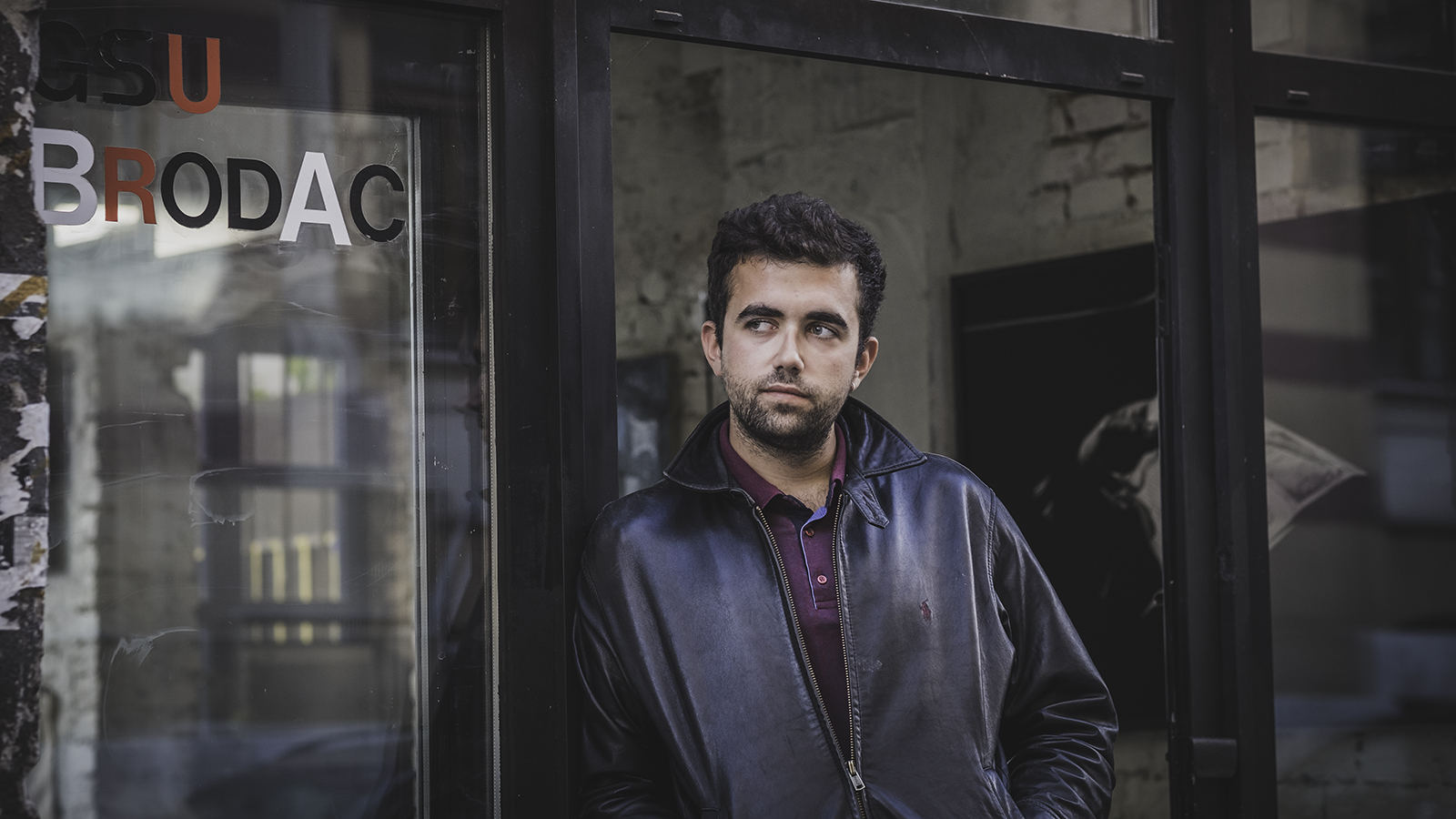
Mak Hubjer. Photo: © Sacha Jennis
Hubjer said he wants to create “opportunities for artists and audience to interact in an independent space, excluded from any unwanted political or social impact”, and to help “make our contemporary art scene stronger and bigger – as it deserves to be”.
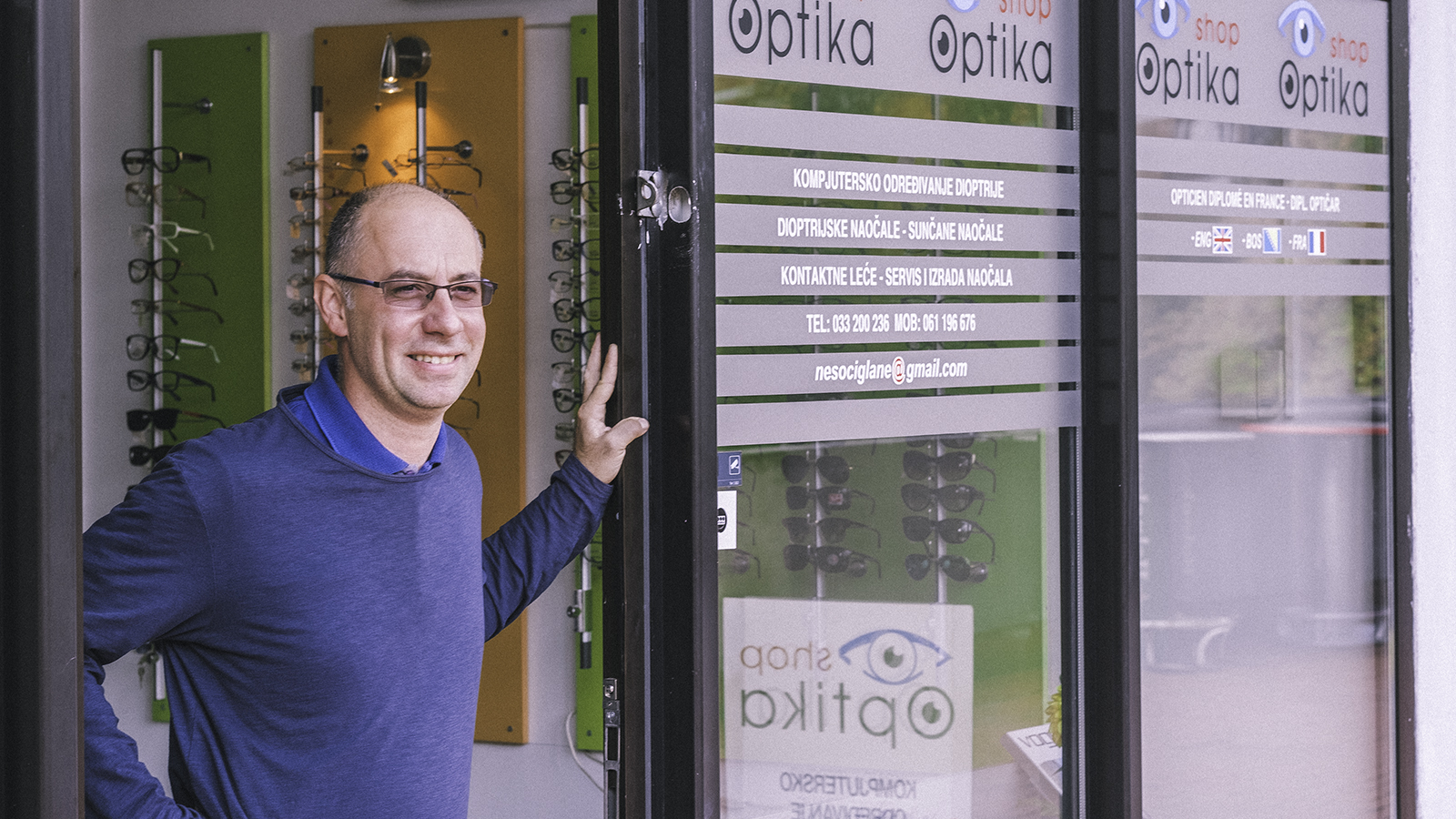
Nebojša Savić. Photo: © Sacha Jennis
“Finances and business, especially now, are not great,” he said. “But even in these hard times, we arrive to work, enjoy life and smile!”
First published on 26 August 2020 on Balkaninsight.com.
This text is protected by copyright: © Sacha Jennis. If you are interested in republication, please contact the editorial team.
Copyright information on pictures and graphics are noted directly at the illustrations. Cover picture: Erva Nevesinjac. Photo: © Sacha Jennis.